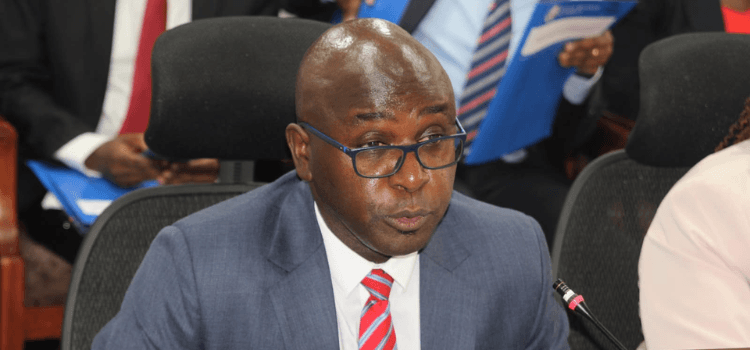We're loading the full news article for you. This includes the article content, images, author information, and related articles.
The new system-driven solution on the iTax portal offers a six-month instalment window for taxpayers with outstanding liabilities, a strategic move to boost voluntary compliance and national revenue collection amid a challenging economic climate.

The Kenya Revenue Authority (KRA) has launched a new Automated Payment Plan (APP), a system designed to allow individuals and businesses to settle their outstanding tax liabilities in structured instalments. According to a public notice dated Friday, November 7, 2025, this initiative aims to provide financial relief for taxpayers unable to clear their dues in a single payment, thereby enhancing voluntary compliance.
The APP mechanism, accessible via the iTax portal, enables eligible taxpayers to pay their principal tax, penalties, and interest over a maximum period of six months. This move is part of KRA's broader strategy to simplify tax administration and improve the efficiency of revenue collection. It runs parallel to, but is distinct from, the ongoing tax amnesty program which covers historical tax debts up to December 31, 2023, and requires full payment of the principal amount by June 30, 2025, to have associated penalties and interest waived.
To qualify for the new automated plan, taxpayers must meet several conditions. An applicant must hold a valid KRA PIN, have a fully updated iTax profile, and have a confirmed tax liability that is not currently under dispute through objection, appeal, or court litigation. Crucially, the taxpayer must also demonstrate a genuine inability to pay the full amount at once. Eligible individuals and companies can then submit a proposed repayment schedule through the iTax portal for system validation.
The KRA has issued a stern warning that failure to adhere to the agreed-upon monthly payment schedule will lead to the termination of the plan. In such cases, the authority may trigger enforcement actions, which could include the revocation of the taxpayer's Tax Compliance Certificate (TCC) and the initiation of other legal recovery measures.
The introduction of the APP is a significant component of KRA's evolving strategy, which increasingly blends facilitation with stricter enforcement. This initiative is coupled with another major overhaul set to begin in January 2026, where the KRA will start validating all income and expenses declared in tax returns. This validation will be conducted by cross-referencing taxpayer declarations against data from the electronic Tax Invoice Management System (eTIMS), withholding tax records, and customs import data.
This twin approach suggests a strategic pivot: offering a supportive pathway for those with existing debts while simultaneously tightening the net on future non-compliance through technology. Recently, in October 2025, the KRA also enhanced the requirements for obtaining a TCC, making eTIMS compliance mandatory for businesses. An approved payment plan is now a prerequisite for taxpayers with outstanding liabilities who wish to apply for a TCC.
The rollout of the APP comes as Kenya navigates a complex economic environment. The World Bank noted in a May 2025 report that while some macroeconomic indicators have improved, the country faces challenges from high public debt and underperforming revenue collections. The government's fiscal policy is focused on a consolidation plan to slow public debt growth. For the 2025/2026 fiscal year, the KRA is tasked with collecting KES 2.75 trillion in ordinary revenue to finance the national budget.
This new payment plan can be seen as a pragmatic tool to unlock revenue from taxpayers financially constrained by the current economic climate. By providing a structured and manageable way to clear arrears, the KRA aims to improve its collection rates without resorting immediately to more punitive measures. This aligns with its broader goal of fostering a culture of voluntary compliance, which is critical for achieving the nation's ambitious revenue targets and ensuring fiscal stability. Tax experts suggest that such technology-driven initiatives are essential for modernizing tax administration and closing the compliance gap.
Keep the conversation in one place—threads here stay linked to the story and in the forums.
Sign in to start a discussion
Start a conversation about this story and keep it linked here.
Other hot threads
E-sports and Gaming Community in Kenya
Active 9 months ago
The Role of Technology in Modern Agriculture (AgriTech)
Active 9 months ago
Popular Recreational Activities Across Counties
Active 9 months ago
Investing in Youth Sports Development Programs
Active 9 months ago